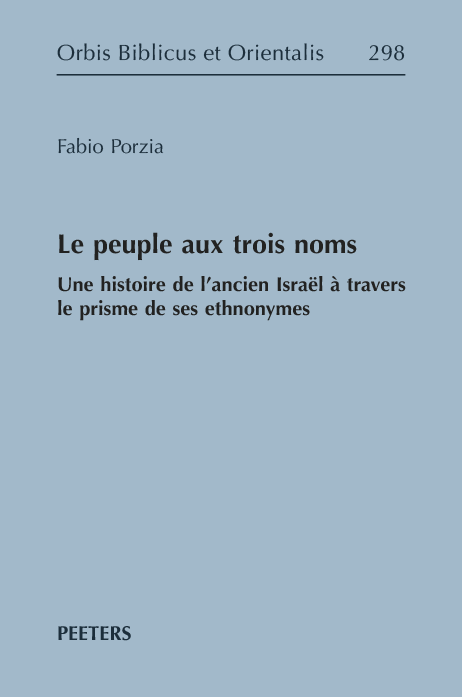skip to main |
skip to sidebar
L’identité juive n’a cessé de faire l’objet d’un questionnement,
notamment depuis la découverte des premiers témoignages archéologiques
attribués aux «proto-Israélites» de l’Âge du Fer jusqu’aux discussions
récentes sur l’attribution de la nationalité dans l’actuel État
d’Israël. L’élément commun de cette histoire plurimillénaire réside dans
le nom «Israël». Conçue à rebours d’une lecture statique du texte
biblique, cet ouvrage propose une histoire des différents ethnonymes du
peuple élu («Israël», «Juifs/Judéens», «Hébreux»). Menée à partir de
sources archéologiques, épigraphiques et littéraires, l’enquête vise à
évaluer l’apport de la tradition juive à la construction des notions de
peuple et d’appartenance, qui, à travers l’héritage chrétien, conduirons
jusqu’à l’élaboration du concept moderne d’État-nation. Ainsi la Bible,
le Livre, ne constitue pas seulement une source à la fois textuelle et
historique pour l’orientaliste mais également une tradition à partir de
laquelle on peut interroger le regard des sociétés sur elles-mêmes et
les relations qu’elles entretiennent.
Jewish identity has always
been a highly disputed topic. Such a dispute increased with the first
archaeological discovery of the so-called Iron Age “proto-Israelites”
and the recent debates about the relationship between being a Jew and an
Israeli citizen in the modern state of Israel. Notwithstanding a three
thousand years old history, the name “Israel” continues to be used.
Adopting a diachronic approach to the biblical text, this book retraces
the history of the different ethnonyms related to the “chosen people”
(“Israel”, “Jews/Judeans”, and “Hebrews”). Encompassing archaeological,
epigraphic and literary evidence, it reassesses the role played by
Jewish tradition in the development of concepts such as “peoplehood” and
“group identity”, which, through the Christian heritage, resulted in
the modern concept of Nation-State. The Bible, the Book, is thus not
only a source for the orientalist but can also be a useful tradition
that may help us to a better understanding of our societies and the
relationships they maintain with each other.
This book is published open access. It can be downloaded here.
year: 2022
isbn: 9789042950733
e-isbn: 9789042950740
pages: XII-406 p.










 Stumble It!
Stumble It!

No comments:
Post a Comment